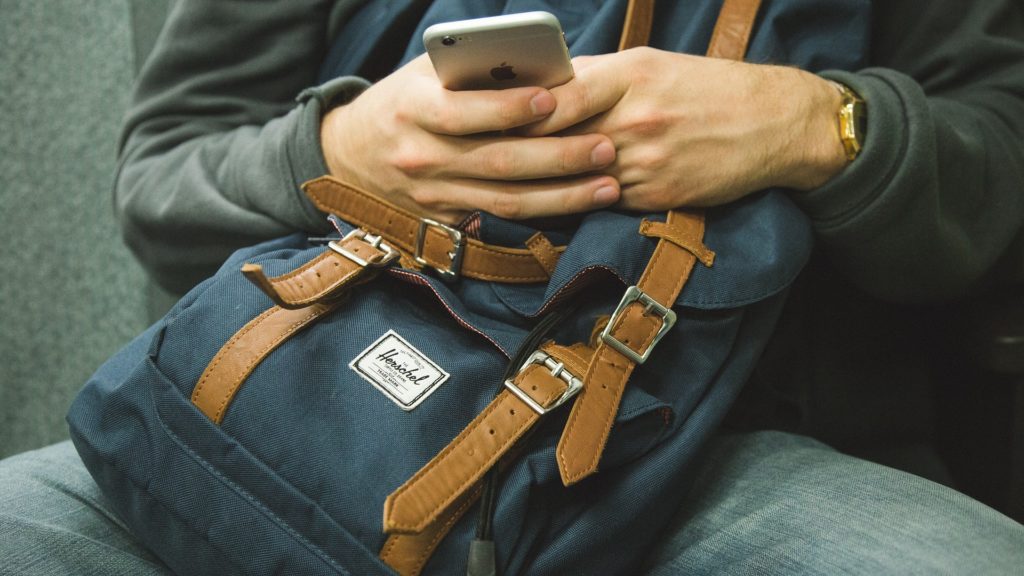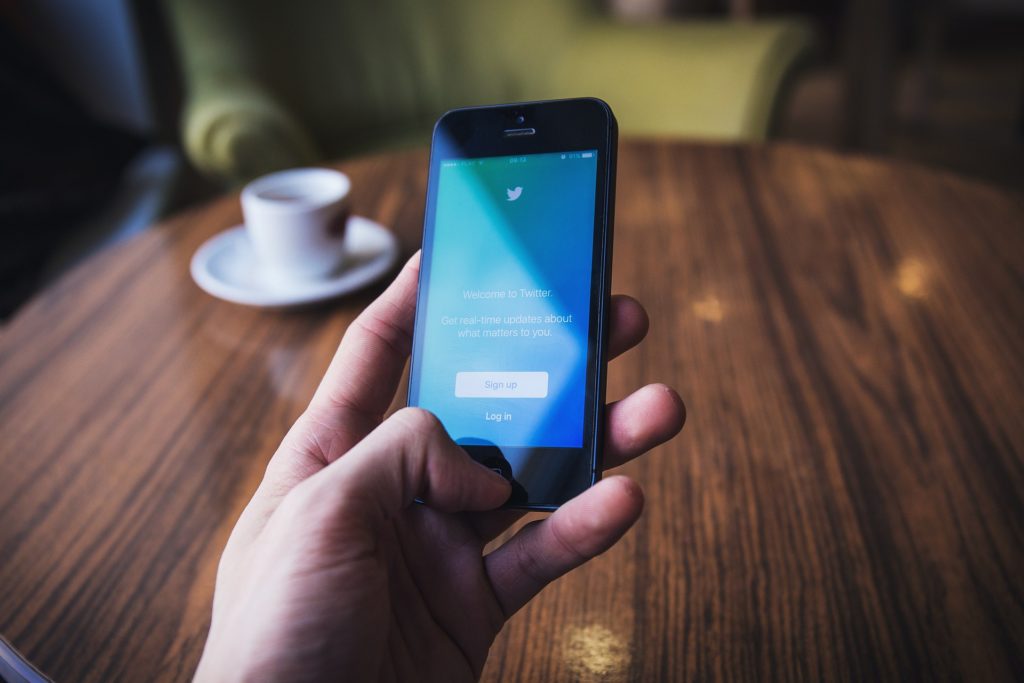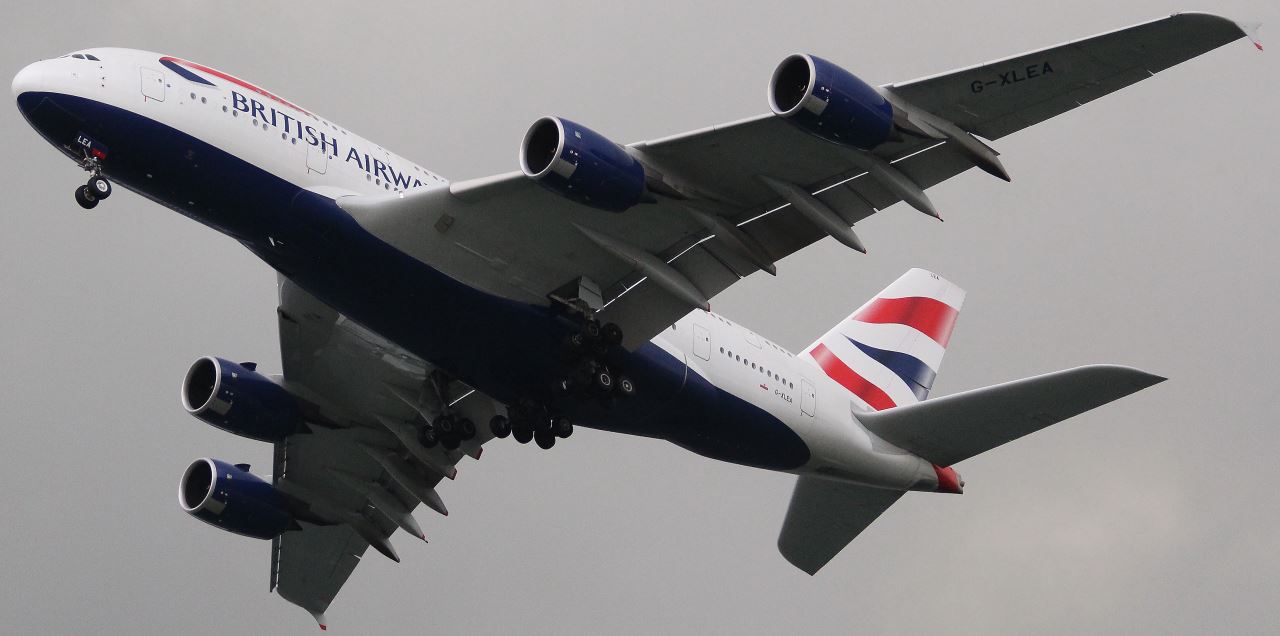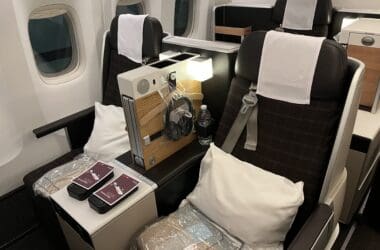I’ve had it. For months now I’ve grappled with the reality of what the “smart” phone does to my productivity and attention. Everything feels splintered. I rarely make it to a really engaged state (i.e. “the zone”) when I’m working on a task. There are times where this happens, but even when it does, it doesn’t happen for very long.
The phone rings. The text alert pings. I check my email or Slack for the 47th time that day. Rather than making life better by keeping me in near-instant communication with everyone I know, my smartphone entangles me to the point that I lose focus on the important stuff, This can be work, but it can also keep me from being present with family, or detract from my experience when traveling. Last week I found myself checking my email when I’d hit a patch of WiFi in London on my last trip abroad with my kids. Why? Simple force of habit. In an age of connection, disconnecting is difficult.
This is the sad reality of my smartphone use. It’s not pretty. I’m no longer in denial, and I’m ready to ditch the thing entirely.
The Upside to Living Without a Smartphone
Technology has made the world an interesting place. In many ways, smartphones have improved our lives. I am now able to communicate with friends across the globe at any moment. It takes just seconds to send a text, instant message, or some other form of communication. Our world a very connected place, and I can keep in touch with anyone.
Yet the ubiquity of this technology has major downsides. Smartphone addiction is real. At this point, there is no doubt that smartphones reduce our capacity for problem solving, splinter our focus, and likely make us dumber, thanks to the distracted state in which it constantly places you (even by just being close by). My smartphone could be ruining my capacity for productivity. On many occasions now, I feel like I was better a couple years ago at writing, programming, and other critical work that I perform on a daily basis than I am now. While I’m certainly to blame, the smartphone has not helped one bit. It calls to me every time I am between tasks, every time there are a few seconds of “boredom”.
This stark reality of daily life with a phone is what prompts me to ditch my smartphone entirely. Without it, I’d certainly be less connected. But not entirely disconnected. I use a desktop computer daily for work. This would be entirely sufficient for my needs. And I have a laptop available at home if I really do need to accomplish from work or side work.
Living without a smartphone would certainly help me be more “in the moment” all the time. This is something I’ve realized I’ve lost over the past few years, between the stress of work and adjusting to being a family of five rather than a couple. This is the biggest upside I see to ditching my smartphone.
Living without a smartphone would also reduce the stress I feel regarding work. Rather than having email at my fingertips all the time, I would be disconnected when not at the office or logged in remotely to work. Just thinking about this being the norm provides a large measure of mental relief. When I’m out, I’d truly be out. This isn’t always the most ideal thing when you’re consultant. But I’d rather stay sane than work myself to death.
But why can’t I accomplish the productivity and self-control I desire while simultaneously having and using a smartphone? I don;t know. I should be able to do so. But the phone has moved from being a tool to being a hindrance. And because of that, it must go. Yet there are reasons why this would be painful.
Why Travel is Holding Me Back
While I am ready to ditch my smartphone entirely in daily life, there are a few reasons why I love having one when traveling. First and foremost, I have access to maps on demand. I’ve gotten into the habit of downloading Google maps offline when traveling, and it helps immensely. I use other travel apps as well, including airline apps and the Apple notes app for jotting down notes about our adventures when abroad. Not having these would hurt.
There is also the desire to be active on Facebook, Instagram, and Twitter. But at this point, I will happily ditch all those apps. Sure, they are nice, but they are also a massive time sink.
The other huge travel aspect is the smartphone camera. I shoot most of my photos from my phone. I’ve been eyeing getting an iPhone 11 simply for the camera. I would love to be able to take fantastic night shots with my phone. The camera abilities look amazing, and having everything I need in one device would be the most ideal.
If I ditch my smartphone entirely, I would give up these travel essentials. Are there workarounds? For sure. But hauling around a quality camera and a phone isn’t exactly what I want to do.
But I can manage. Picking up a better camera will likely be in the cards. As far as maps go, I used to make travel notebooks with pasted in maps of sections of where we are visiting, lists of things to do and places to eat, and other compiled research beforehand. I’ve gotten out of the habit, unfortunately. This will likely return as a necessary part of future planning.
I’ll also plan to pick up a local SIM to be able to at least have the ability to text and call locally. Until now, I’ve typically relied on WiFi for messaging, communication via email, and WiFi calling.
In short: ditching the smart phone when traveling is possible. It just requires adopting a different set of tools.
A Potential (and Pricey) Compromise
I could always pull the trigger on a new iPhone and simply stick it in the desk drawer until I need it. But this seems like a crazy solution, given the cost. If all I need day to day is a phone that can call and text, it seems silly to buy a smartphone just for travel.
Yet this is the best of all worlds. It would provide me a single device to use with all the functionality I desire while leaving me free from smartphone use on a daily basis. I’m just not sure that is worth $800-$1,000.
The other compromise is getting a tablet strictly for travel. But I like my devices to be more portable than that, so this seems like an even worse solution. The final choice is to carry a “dumb” phone and a separate camera, forgetting entirely about the maps and airline app functionality.
Conclusion
Moving past my smartphone is something I desperately need to do. I’m still not quite sure how I’m going to work out the travel aspect, but I will make do, no matter how I decide to proceed. What’s for sure is that it will happen. There is simply too much upside to ditching my smartphone at this point. If it is hindering me more than helping me, it needs to go. It’s not adding greater value to my life, and I’d rather be without an all-in-one device with a camera, airline apps, and maps when traveling than keep it. I’ll make do. And life beyond travel will certainly improve.
What do you think about the need for a smartphone as a frequent traveler? Would you be willing to ditch your smartphone entirely?















So…what did you end up doing about your Smartphone?
I’ve had a backup smartphone for a while. Learned to split the difference, using the daily non-smartphone, but keeping one around for travel primarily.
However, my iPhone now belongs to the wilds of Oahu after a recent trip. We shall see when I can get another one.
Why not get a pixel 3a for around 250$ install a filter like netspark and only have the essential apps that don’t waste your time ( you can have someone else keep the password so you need to call them if you want to add a new app)
That is an interesting idea. The Pixel has a good camera, too.
I live in hotels. Seriously, I am a top level elite with Hilton, Marriott, Hyatt and IHG, and I already do what you’re considering. As for photos, there is a pile of great, cheap cameras for sale, with better lenses than on an iphone. As for the other stuff, Facebook, Google Maps, etc., there is an easy solution. Carry a laptop or tablet. I do this, and it means when I am sitting in my hotel room I use hotel wifi to connect to everything I need, but when I am out and about, I am free from being constantly bothered. I still have a phone for calls and texts, but the rest can wait, and I get to enjoy the sights. Plus, I get to carry a phone small enough to put in the pocket of my Levis and forget it. That last point, phone size, is a huge plus.
The freedom when out and about is what I’m wanting most. It’s become habitual to check the phone every several minutes. Dialing back to a flip phone with nothing more than call or text would kill that issue completely for me.
I totally agree that a smartphone causes so much distraction, it is hard to focus on one thing for long. But then it is so much convenient. makes life easier. As you mentioned, while travelling we are entirely dependent on it. I run a travel blog http://bookpacktravel.com and in my field I can’t run it without having active social media profiles.
I found the solution in Meditation. Now I can proudly say, I have a good self control and the pings don’t distract me that much.
I’ve thought about the social media aspect, especially as a contributor to a blog. Instagram would be hard to manage. But Facebook I can schedule out, and Twitter I don’t care all that much about. It’s available through a PC as well.
How sanctimonious of a post this is. Any professional traveler will know having a smartphone and all the valuable apps for the airlines, hotels, rental cars you’re using on your trip is a must. In a new city? Google maps to the rescue. Can’t understand the guy speaking mandarin? google translate. Need to call an uber from the airport? pull up the uber app. Got friends in other countries? why message them for free on whatsapp when you can just call them internationally from your landline for $1/minute. Gimme a break.
I get that there are fantastic uses of smartphones, which is why I’m considering keeping one for just travel.
If the attitude you see in this is me being “holier-than-thou”, try to take another look. I’ve long seen myself struggling with excessive smartphone use, and going “cold turkey” seems to be the best call. Is it right for everyone? Absolutely not. But I wanted to write about my own difficulties nonetheless.
The other day I was out dining with a few people I commonly get with. After about ten minutes of them just staring at their phones I told them I may as well be on my own (at home or otherwise) and headed off. Luckily we hadn’t ordered since they couldn’t break from the phones long enough to look at the menu.
Such a sad testament to the state of our culture. 🙁
Delete the apps you don’t want to bother you while traveling . Or at least turn off notifications on those. I tell my office that i will not check email and if there is an (real) emergency they need to call or text me.
Keep the bare minimum. When you are back install those apps.
I have tried this and found this to be immensely helpful.
I’ve gotten better about office email, but I’ve not been able to unplug entirely. I’ll consider the app idea, of stripping the phone to the essentials and only those.